RIA Novosti rings in the New Year with a look at masterpieces from Russian and Soviet artists. Today’s image gallery displays the work of Boris Kustodiev.
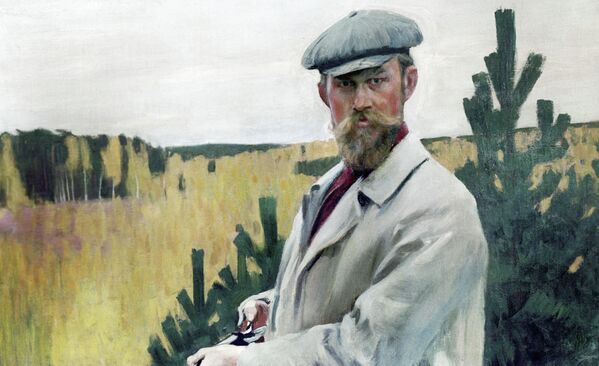
Boris Kustodiev was born on March 7, 1878 in Astrakhan into a secondary school teacher’s family. Photo: “Self-Portrait During Hunting” (1905). Canvas, oil.
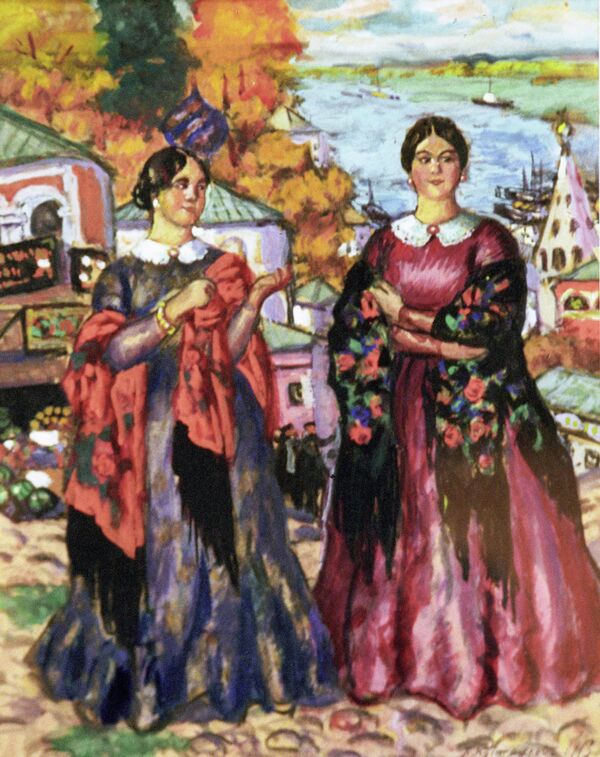
The Kustodiev family rented a small outbuilding near the mansion of a wealthy merchant. It was here that the boy received his first vivid impressions of the everyday life of provincial merchants and their personality types. Photo: “Two Merchant Wives” (1913).
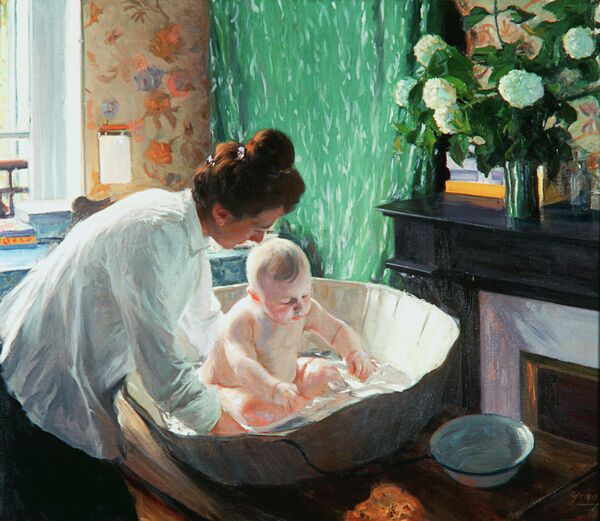
In 1896, Kustodiev enrolled at the Academy of Arts where he studied in the studio of Ilya Repin. After graduation, he went to live abroad where he completed “Morning,” one of his most lyrical paintings.
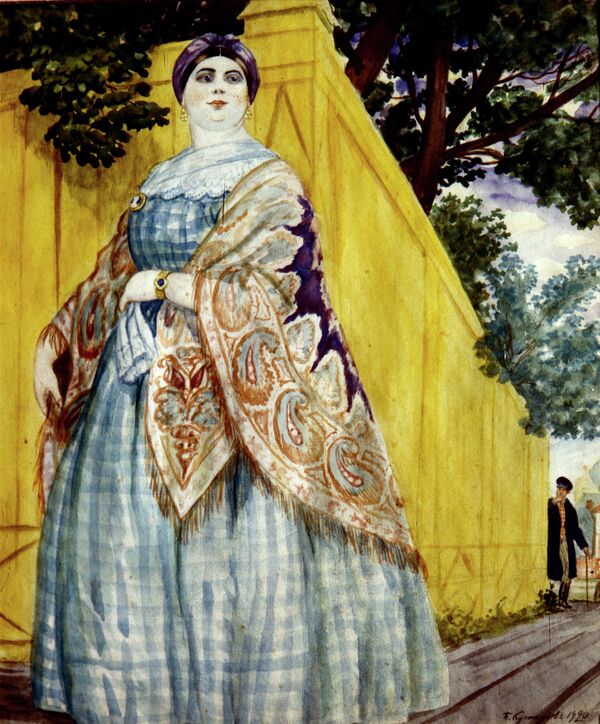
Kustodiev recreated his childhood impressions of the wealthy and affluent merchant life in an entire gallery of paintings and watercolors. Photo: “A Merchant Wife” (1920).
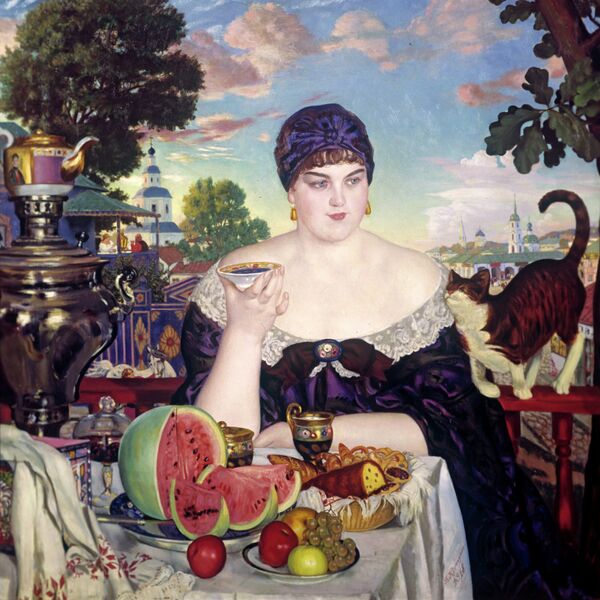
Kustodiev’s vivid pictures of merchants convey a healthy and festive atmosphere. Photo: “The Merchant’s Wife” (1918).
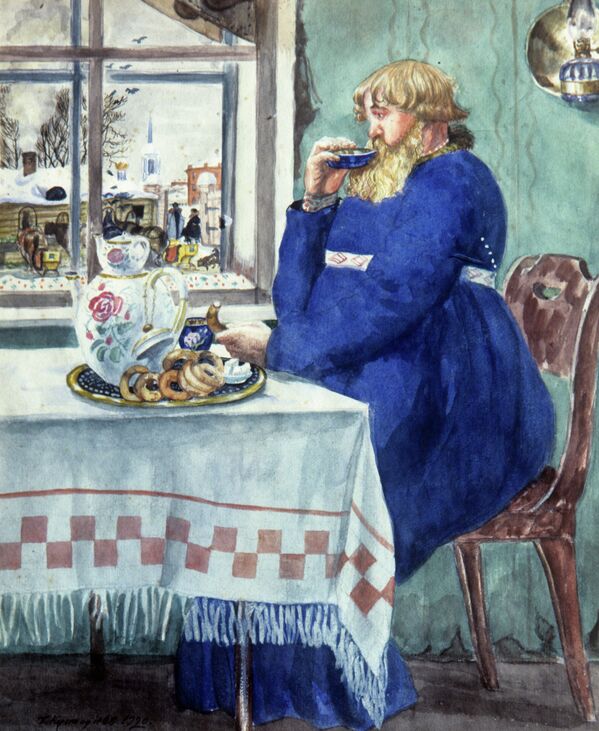
Kustodiev vividly depicted small town life. Photo: “A Cabman Drinking Tea” (1920).
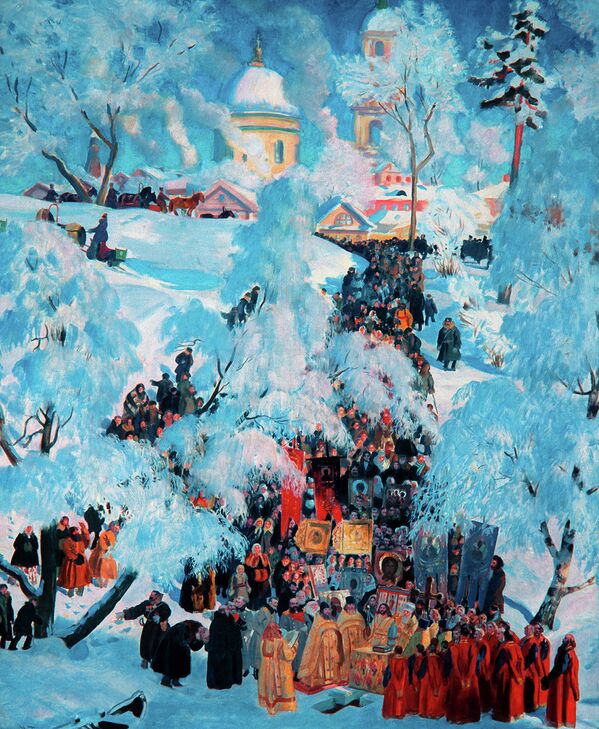
“Religious Procession in a Village” (1915).
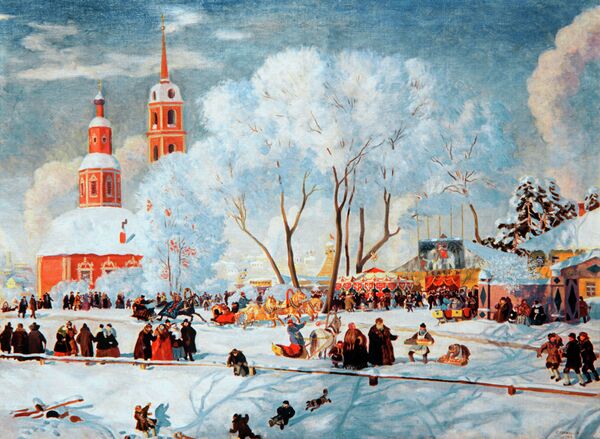
“Pancake Tuesday/Maslenitsa” (1916).
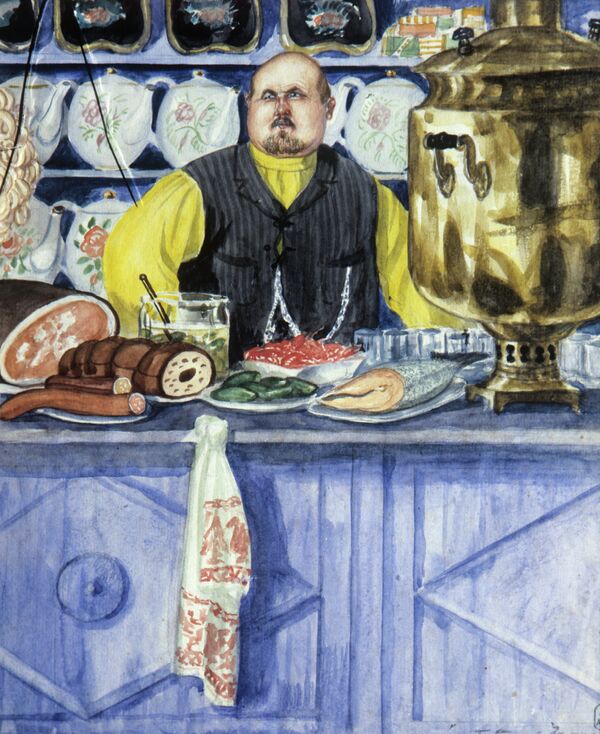
Boris Kustodiev painted an entire picture gallery of typical Russians. Photo: “A Tavern-Keeper” from the “Typical Russians” series (1920). Canvas, oil.
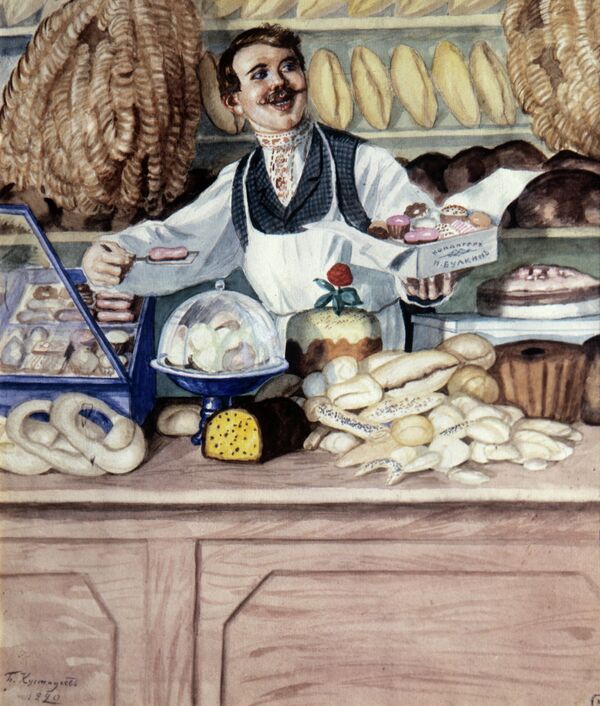
“A Bakery-Keeper” from the “Typical Russians” series (1920). Canvas, oil.
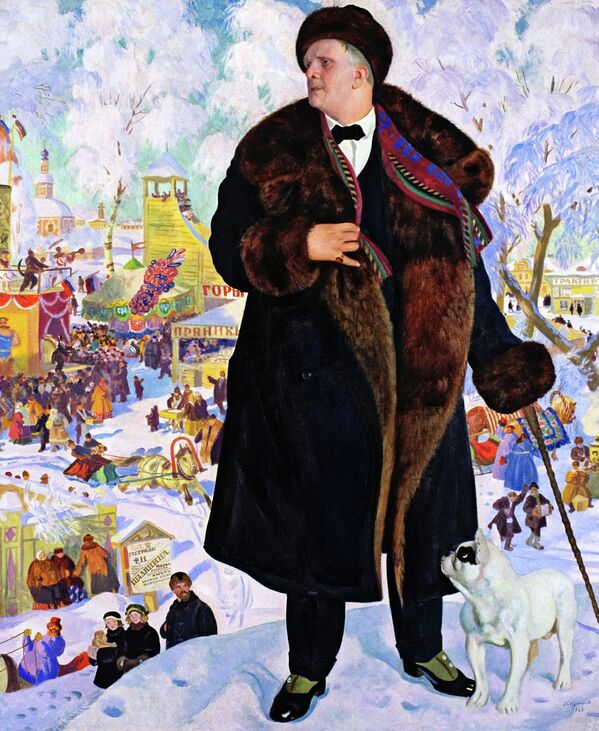
Since the early 1900s, Kustodiev perfected his own unique portrait genre, which directly blends the model with the surrounding landscape or interior. Photo: “Portrait of Fyodor Chaliapin” (1922). Canvas, oil.
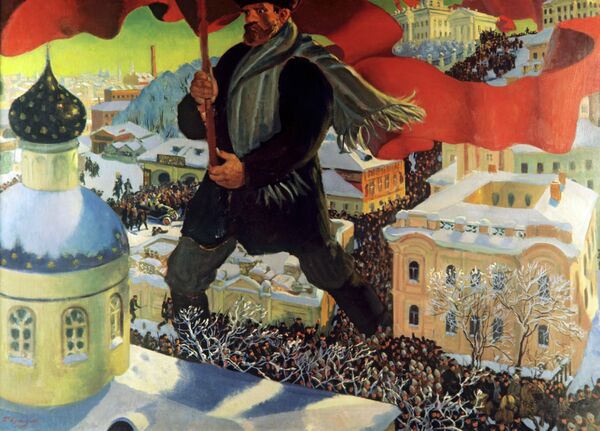
After the revolution, Kustodiev strove to convey the grandiose and sweeping changes in the country. That was how this enormous Bolshevik came into being.
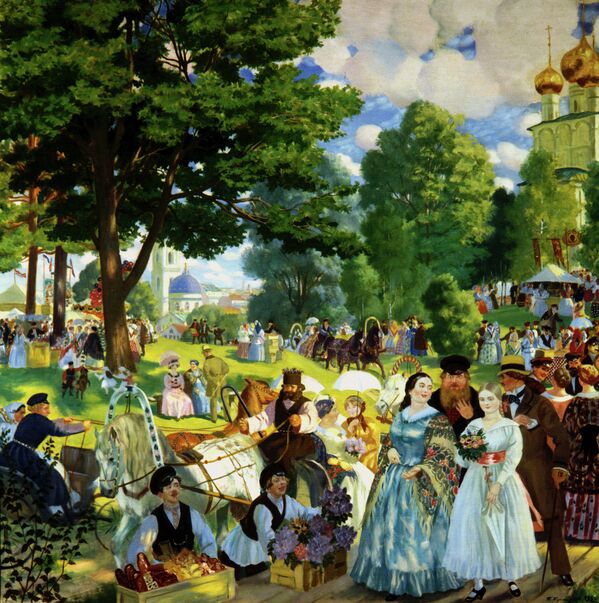
Although confined to a wheelchair for the last 15 years of his life, the artist created his most vivid, optimistic and brightest paintings during that period. Photo: “Trinity Day” (1920).
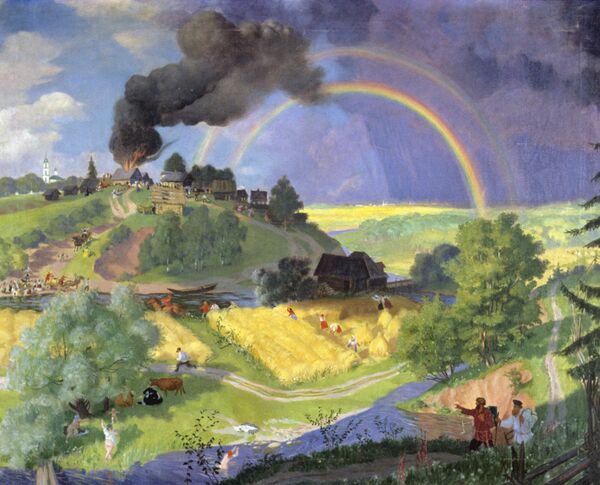
Boris Kustodiev died in 1927 and was buried in the Tikhvin Cemetery of the Alexander Nevsky Lavra (Monastery). Photo: “After the Thunderstorm” (1921).

